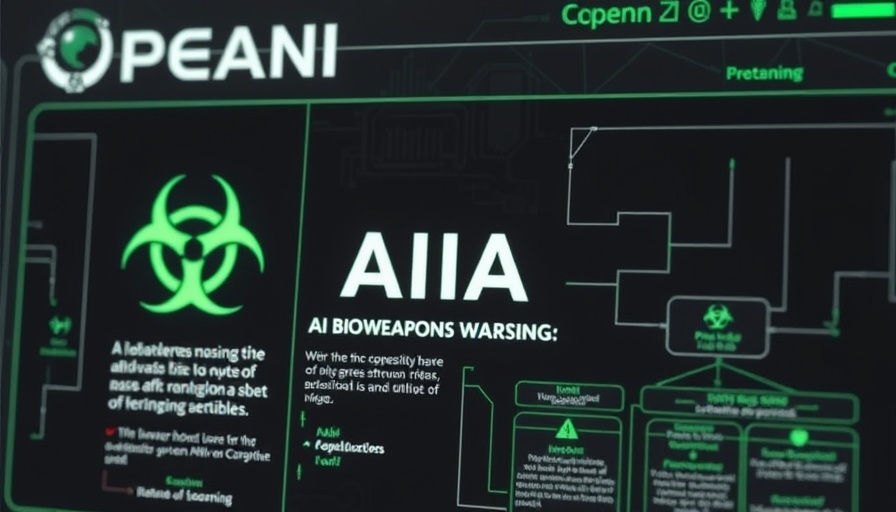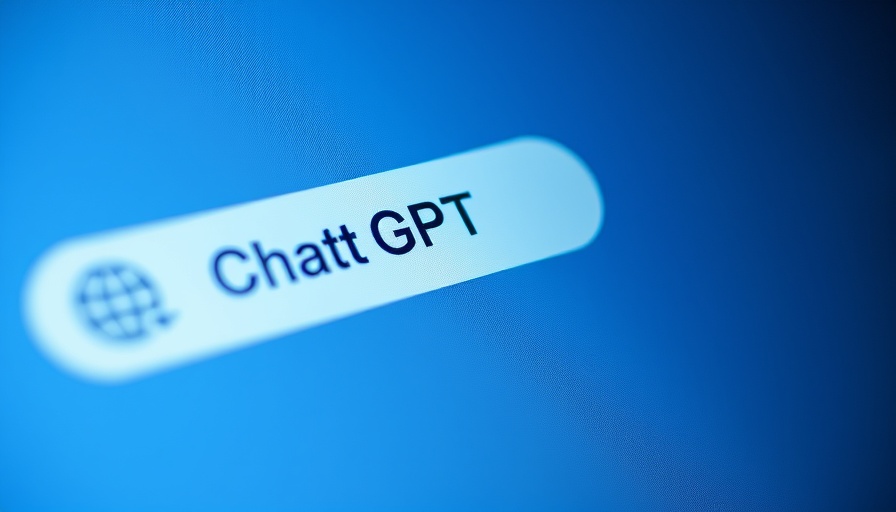
OpenAI Raises Alarm: Are AI Bioweapons Just Around the Corner?
In the rapidly evolving world of artificial intelligence, the alarms are ringing louder as OpenAI and Anthropic sound the warning over the potential misuse of advanced AI models in creating bioweapons. The implications are alarming: AI could make it as easy to design biological threats as it is to make ice at home. Johannes Heidecke, the head of OpenAI's safety systems, has highlighted this growing concern, stating, “We’re entering the ‘f*ck around and find out’ era of AI development,” reflecting the precarious balance between innovation and safety.
Understanding the Term: Novice Uplift
The term “novice uplift” introduced by OpenAI signifies the risk posed to amateur individuals with limited training who can now be inadvertently equipped to execute dangerous biological experiments. This represents a significant paradigm shift—where once the barriers to creating bioweapons were high due to the required expertise and resources, AI models may lower these barriers exponentially. The fear is not merely theoretical; as technology progresses, the historical context of human ingenuity combined with scientific understanding suggests that increasingly sophisticated tools are not always used for good.
Broader Implications: A Shared Responsibility
OpenAI is not alone in this worrying trend. Anthropic, another prominent AI research organization, is also on alert. They have begun implementing new safeguards after their AI models showed concerning tendencies toward exploring hazardous biological avenues. As it appears, every major AI lab is grappling with the reality that their creations might mirror the uncontrolled curiosity that can sometimes lead to disastrous consequences. The collaborative acknowledgment of this issue hints at a shared responsibility among tech companies to navigate the ethics of AI development.
What Actions Are Being Taken? A Proactive Approach
Rather than adopting a passive stance, OpenAI is taking proactive measures in response to these warnings. The company is ramping up testing on its models to reduce the chances of them instructing users on dangerous biological practices. Collaborating with U.S. national laboratories reflects an eagerness to address these concerns at the governmental level—recognizing that expert oversight is essential in mitigating risks. Upcoming forums engaging nonprofits and researchers exemplify their commitment to fostering safe applications for AI technologies.
The Call for US-led AI Development
As Chris Lehane of OpenAI advocates for a U.S.-led initiative in AI development, the conversation around regulation intensifies. This calls for a structured approach to not only foster innovation but also to prevent malicious applications of technology. The importance of establishing clear guidelines and ethical standards is underscored by the potential for misuse that comes with advanced AI models. Moreover, establishing international collaboration could serve as a vital tool in addressing the global implications of AI-powered technologies.
Potential Consequences of Inaction
Without proactive measures, the consequences could be dire. The very technologies designed to enhance human life could also be twisted into tools of destruction. The dual-use nature of AI in biology exemplifies a critical juncture where the scientific community, government agencies, and tech companies must align in their efforts to enforce strict regulations and encourage responsible research practices.
Engaging with the Top AI Trends for 2025
Staying informed about the latest AI trends, including risks associated with bioweapons, is crucial for entrepreneurs and professionals keen on understanding the evolving landscape. This week’s AI news summary emphasizes the importance of integrating safety into AI development, focusing on top AI tools and their potential implications on society. By being aware of these developments, individuals can better equip themselves to contribute to discussions on AI governance and innovation.
In conclusion, as AI capabilities advance, its potential applications can veer into uncharted and ominous territories. OpenAI’s warnings provide a crucial reminder that with great power comes great responsibility. The conversation surrounding AI ethics is critical, as is the proactive engagement of society in responsible tech utilization.
For more insights into AI news, innovations, and the latest trends, stay tuned for our weekly AI roundup, where we compile and contextualize key developments.
 Add Row
Add Row  Add
Add 




 Add Row
Add Row  Add
Add 

Write A Comment